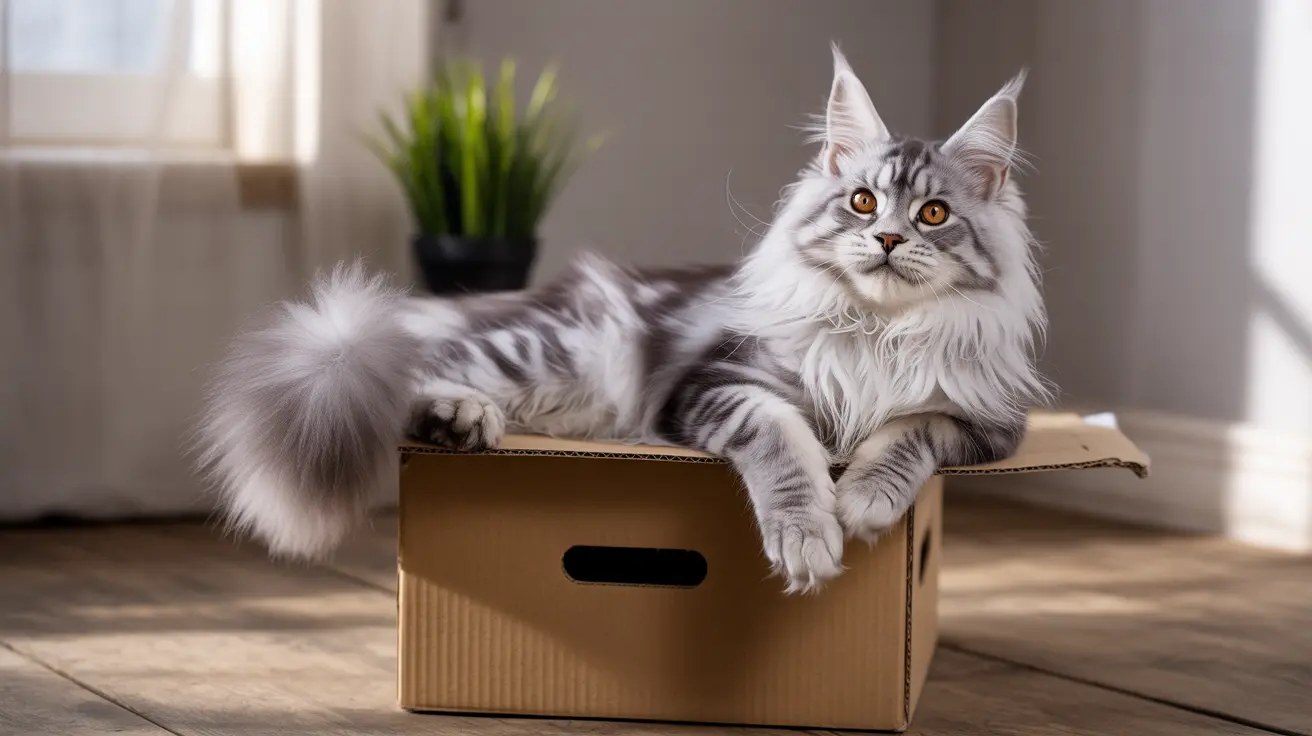Ever wondered why cats consistently make us laugh with their unpredictable behaviors and quirky personalities? From midnight zoomies to bizarre box-sitting adventures, our feline friends have an uncanny ability to turn everyday moments into comedy gold. Let's explore the fascinating science and evolutionary reasons behind their entertaining antics.
While cats may not intentionally try to be comedians, their natural instincts, predatory behaviors, and unique way of interacting with their environment create moments of pure hilarity that have made them internet sensations and beloved household entertainers.
The Evolutionary Origins of Funny Cat Behavior
Many of cats' most amusing behaviors actually stem from their wild ancestry. Their predatory instincts, refined over millions of years, manifest in ways that appear comical in our modern homes. When your cat suddenly pounces on invisible prey or performs acrobatic feats from your furniture, you're witnessing ancestral hunting behaviors in action.
These instinctual drives combine with their unique physiology - flexible spines, keen senses, and lightning-quick reflexes - to create those picture-perfect moments of feline comedy that we can't help but share on social media.
The Science Behind Cat "Zoomies" and Other Hilarious Habits
What we perceive as funny behaviors often serve important biological or social functions for cats. Their famous "zoomies" - those sudden bursts of energy where they race around the house - actually help release pent-up energy and satisfy their natural hunting instincts.
Even seemingly silly behaviors like knocking objects off tables or squeezing into tiny spaces have evolutionary explanations. Cats investigate objects by batting them around (testing if they're prey), and small spaces provide security reminiscent of their wild ancestors' dens.
Understanding Your Cat's Comedic Timing
Cats seem to have an innate ability to choose the most dramatic or inappropriate moments to perform their hilarious routines. This isn't actually intentional comedy - it's often related to their natural activity cycles and response to environmental stimuli.
Their heightened senses can detect things we can't, leading to apparently random reactions that seem perfectly timed for comedy. When your cat suddenly stares at "nothing" and puffs up their tail, they're likely responding to a sound or movement beyond human perception.
The Social Side of Feline Humor
While cats may not understand humor as we do, they're incredibly attuned to human emotions and reactions. Many cats learn that certain behaviors get positive responses from their owners, leading them to repeat these actions for attention or rewards.
Research suggests that cats can form strong emotional bonds with their owners and may even mirror their moods, contributing to more playful and entertaining interactions when their humans are in good spirits.
Frequently Asked Questions
Why do cats suddenly run around the house with "zoomies" and look so funny?
Cats experience "zoomies" (technically called Frenetic Random Activity Periods or FRAPs) when they need to release excess energy. This behavior is especially common in indoor cats and often occurs at dawn and dusk, matching their natural hunting times in the wild.
What does it mean when my cat kneads me like dough—why is that behavior so amusing?
Kneading is a behavior that begins in kittenhood to stimulate milk production while nursing. Adult cats continue this behavior when they're content and relaxed, making it both endearing and amusing to watch, especially when accompanied by purring and a blissful expression.
Why do cats knock things off tables, and is it their way of seeking attention?
Cats knock objects off surfaces both to test if they're prey (their paw swipes mimic hunting movements) and to seek attention from their owners. They quickly learn that this behavior gets a reaction, making it an effective way to engage with their humans.
How can a cat's odd vocalizations and chirping be explained in funny ways?
Cats chirp and make unusual sounds primarily when they spot potential prey through windows. This behavior might be an expression of excitement or frustration, or possibly an attempt to mimic prey sounds. Some experts believe it's also a way to practice their killing bite.
Why do cats love squeezing into boxes and tight spaces, and why does it make them so entertaining?
Cats are drawn to small spaces because they provide security and warmth. In the wild, enclosed spaces offer protection from predators. The amusing part comes from their "if I fits, I sits" mentality, where they attempt to squeeze into increasingly improbable spaces, seemingly defying the laws of physics.
Conclusion
Whether they're chasing laser pointers, performing aerial acrobatics, or contorting themselves into impossible spaces, cats' natural behaviors provide endless entertainment. While they may not intend to be funny, their unique combination of instincts, physiology, and personalities creates moments of pure comedy that make them truly special companions.






